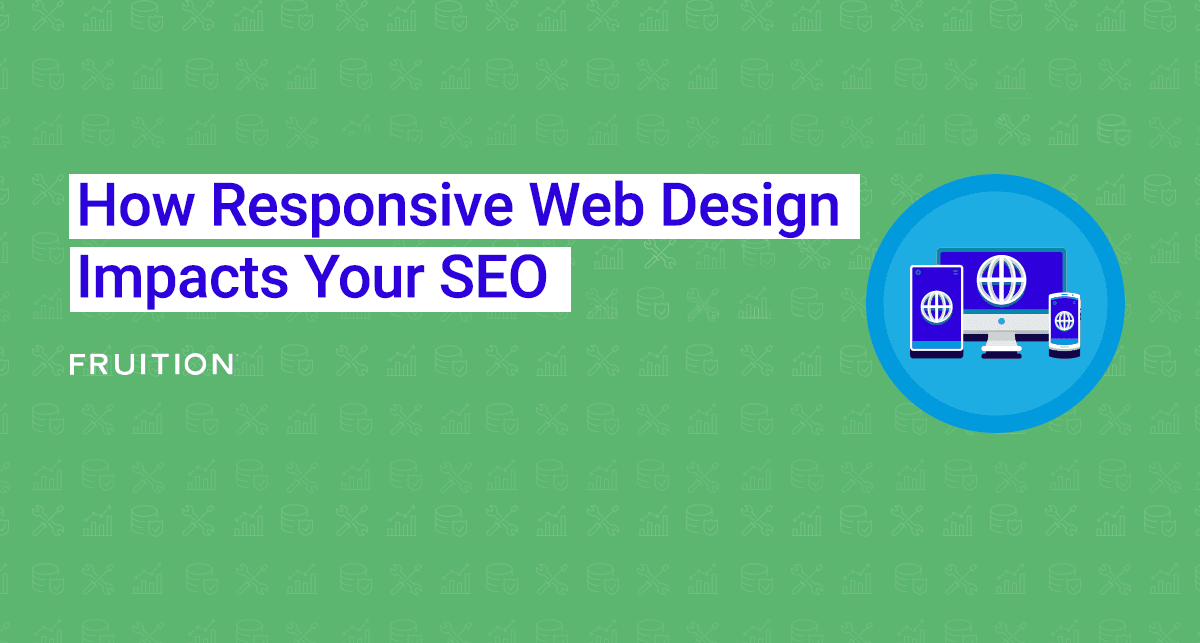Elevate SEO with Responsive Web Design | Mobile Search Optimization

Elevate SEO with Responsive Web Design | Mobile Search Optimization
How Responsive Web Design Impacts Your SEO
The way people browse the Internet is changing. Going back to 2016, Google reported that for the first time, the majority of search queries came from mobile devices rather than desktop computers; and it’s a trend that shows no sign of reversing anytime soon. Consequently, Google has been altering its search engine algorithms to better fit this new mobile-oriented environment; and any website looking to retain its position in the search result rankings should adjust their SEO strategy accordingly. A number of different strategies have emerged in response to the rise of mobile. Some sites have focused entirely on optimizing for mobile, accepting the fact that their site will no longer be as suitable for desktop visitors as a necessary sacrifice. Other sites have split their content into two separate domains, one optimized for desktop and the other for mobile, and thus doubled the effort necessary to maintain it. However, there is also a third option which has quickly become the preferred method for a mobile friendly website: responsive web design.
What is Responsive Web Design?
Responsive web design is a way to optimize a single web page for both desktop and mobile viewers. It detects what type of device a visitor is viewing the site on, then adjusts the layout and image size accordingly in order to give them the best possible experience. Page elements are laid out on a fluid grid which sets their size not with a fixed number of units, but as a percentage of available space that adjusts depending on the size of the screen used to view them. Lower-resolution versions of an image can be used for smaller displays in order to speed up loading time. CSS queries can be used to change the layout of the page entirely, adjusting elements to horizontal or vertical positions depending on whether the display is tall or broad.
WordPress Responsive Web Design
Yes, you can make your WordPress site responsive.
Advantages of Responsive Web Design
Responsive web design offers a number of advantages to websites which employ it.
- Better User Experience Before the widespread popularity of mobile devices, pages were optimized exclusively for desktop. As technology changes, site design is changing to keep up with the trends; but switching a site from being optimized solely for desktop users to being optimized solely for mobile users still means that a portion of visitors are receiving a substandard experience. Responsive web design allows a site to be optimized for mobile devices without any negative consequences desktop users.
- Page Speed A fast loading speed is essential for a web page; if too much time passes without any content appearing, a user with press the back button and try their luck somewhere else. This can be a problem when sites optimized for desktop are accessed from smaller and less powerful mobile devices. Responsive web design provides methods for increasing loading speed on mobile devices. For instance, since pictures are displayed at smaller size and on smaller screens, lower resolution image files can be loaded for users employing mobile devices.
- Google Rankings The number of searches which are performed from mobile devices is only increasing, and Google is updating its algorithms accordingly. Having a mobile friendly site is now considered one of the factors that can directly influence your search rankings. As mobile searches have surpassed desktop searches, Google has been moving towards a mobile first world and has been updating its algorithms to center on factors that favor mobile friendly sites. Google has been vocal about its commitment to promoting a mobile friendly web experience and a series of algorithm updates have been launched since 2015 that are designed to favor mobile friendly sites in the search rankings.
Google Updates Related to Responsive Web Design
Google has been changing their ranking algorithms to meet the demands of a mobile first world. Here are some of the reported updates that affect mobile sites in the search rankings.
- Mobilegeddon The first Google algorithm update taking a site’s mobile-friendliness into account when determining its ranking in search results was an April 21, 2015 update which the SEO community dubbed “Mobilegeddon”. The name turned out to be somewhat hyperbolic; it only affected the rankings of sites in searches performed from mobile devices, and the average loss of rankings for non-mobile friendly sites was only 0.21 positions. Nevertheless, this update served as a warning that Google was beginning to take mobile-friendliness seriously as a ranking factor and forewarned of further algorithm updates along the same lines to come.
- Mobile-Friendly Algorithm Boost Way back in 2016, Google rolled out an algorithm update which increased the impact of mobile-friendliness as a ranking factor. This update did not affect sites which were already mobile-friendly but increased the penalty for sites which were not mobile friendly. With this update, Google made it clear that the importance of mobile-friendliness as a ranking factor would only continue to increase over time.
- Mobile-First Slow Rollout Begins Google’s push for mobile-friendliness as a ranking factor continued on October 25, 2017 when it announced the beginning of a slow rollout of a mobile-first index. Under the mobile-first index, Google would create and rank its search listings based on the mobile versions of pages rather than the desktop versions, and all pages would be crawled with a mobile user agent. Google announced that they would be rolling out the mobile-first index slowly in order to avoid causing a large disruption to search rankings, beginning with sites which are already 100% mobile-friendly, but that their entire index would eventually be switched to mobile-first.
- Mobile-First Index Rollout On March 26, 2018, Google announced that mobile-first indexing would be rolled out to more sites and reaffirmed that their eventual goal was to convert their entire index to mobile. Google warned that while this was not intended to be a ranking change, the fact that sites were being browsed with mobile clients meant that sites could suffer if they did not display properly on mobile devices or if their mobile versions were inferior to their desktop versions.
- The Speed Update On January 17th, 2018 Google announced that people want a fast loading site, noting that previous page speed factors had been only centered on the desktop experience. Beginning in July of 2018 they announced that will be launching the “Speed Update” for all devices, which is designed to account for page speed factors on any device, including mobile. While they said that search intent is still one of the strongest signals, site performance factors such as slow page speed will now be a ranking factor in mobile searches.
Conclusion
The demographics of search are changing to be primarily mobile-based, and Google is changing their ranking algorithms in accordance to this reality. In order to provide a positive user experience to searchers, and in order to maintain a high ranking in Google’s search results, making web pages mobile-friendly is a must. Responsive web design is a method of creating mobile-friendly pages which comes with many advantages: it always optimizes for mobile without sacrificing optimization for desktop, and it provides methods for increasing page loading speed and improving user experience. When designing web pages for the modern searcher, responsive web design is the route to choose. Mobile search has long surpassed desktop searches. In today’s mobile world it’s imperative that you are providing the experience your users expect. Knowing that Google is quickly adapting its ranking factors to favor sites that are optimized and designed for the mobile experience is a clear sign that you need to have mobile friendly site. If you have questions about designing for the mobile experience, moving to a responsive web site or any of the factors that impact how your website is ranked, contact the experts at Fruition for the most up to date insights and answers.
Related: Optimize Your Website for Mobile Commerce
“Google’s mobile-first index has rolled out for some sites & will be implemented very slowly” by Barry Schwartz. Search Engine Land. October 26, 2017. https://searchengineland.com/googles-mobile-first-index-rolled-site-will-roll-slowly-285590 “Google begins rolling out mobile-first indexing to more sites” by Barry Schwartz. Search Engine Land. March 26, 2018. https://searchengineland.com/google-begins-rolling-out-mobile-first-index-to-more-sites-295095





